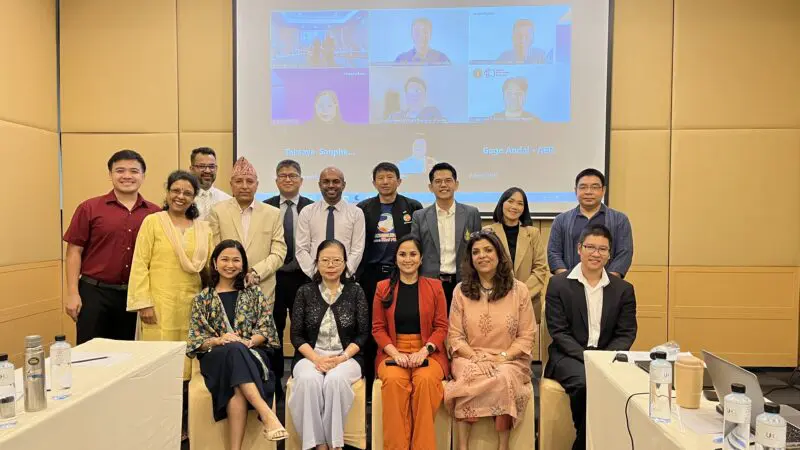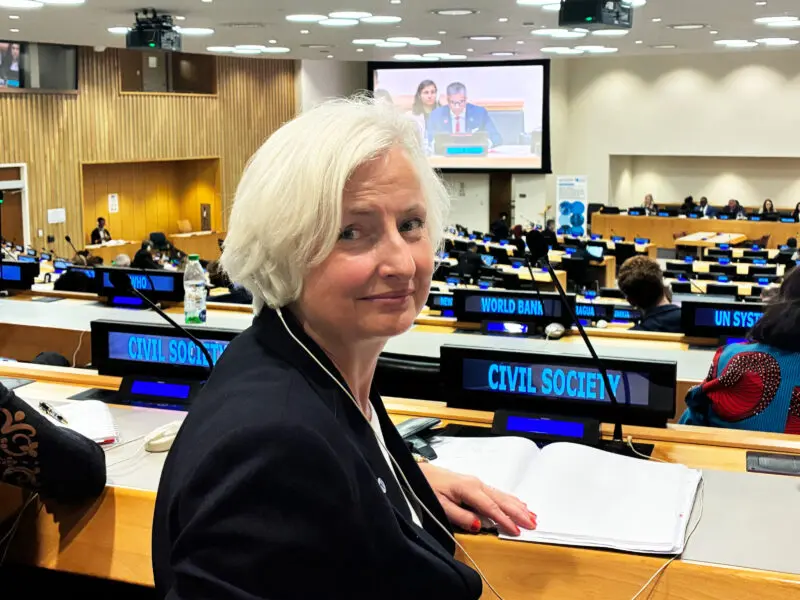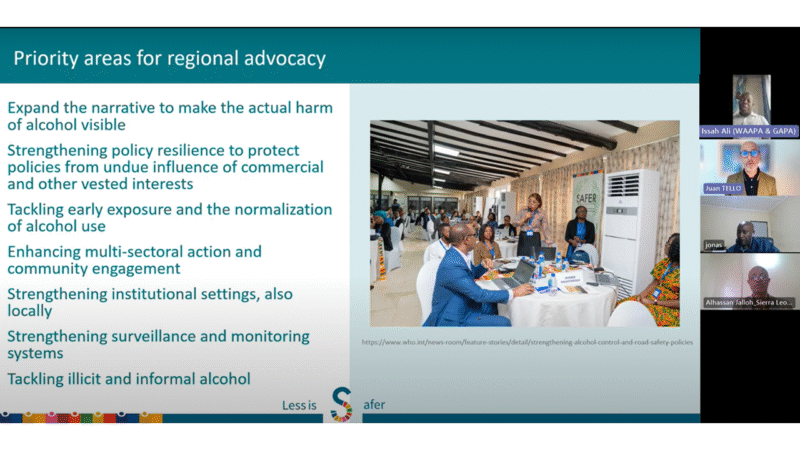40 people are sitting in a conference room at a hotel in Colombo, Sri Lanka. We are all about to take a deep breath, cover our eyes and ears, and hum like bees as we exhale.
Bhagawati Shrestha is giving the instructions. She is the leader of Balika Peace Home in Nepal, a transit shelter for girls run by FORUT’s partner, CWIN.
«We do this exercise with the girls when they have nightmares, flashbacks, or experience stress,» she says.
She meets children and youth daily who are traumatized by violence, abuse, and crises.
How can we best meet children who have experienced the worst, and how can we help ourselves to be good helpers?
Over the course of six days, staff from FORUT and eight of our partner organizations from Sri Lanka, Nepal, and India have gathered in Colombo to learn more about trauma in children, men, and women after sexualized violence.

Bhagawati and the girls at Balika Peace Home in Nepal.
Do no harm
In their work, FORUT’s partners encounter vulnerable children and adults every day. How we can best help, prevent unnecessary suffering, and facilitate healing is crucial for people to have the power to change their own lives.
«Everyone who works with people, especially children, needs knowledge about what can cause trauma and how we can best meet those who have experienced the most horrific things. We are not medical personnel, so our task is to do no harm, prevent unnecessary suffering and hopefully support them in the right direction,» says Elin Kjeldstadli Hatlestad, program manager for mental health at FORUT.
For the past 10 years, FORUT has increasingly focused on mental health in development cooperation. We will not achieve the goal of good health for all and universal health coverage unless we also address mental health.
«This is far too important to be left to psychiatrists and psychologists alone. Most people in our partner countries will never have access to health professionals anyway. The psychosocial support we can provide is often the only help available. We need knowledge, especially about trauma reactions,» Elin continues.
Mental health on the agenda
This is why FORUT, in its current framework agreement with Norad, has made mental health one of its key program areas to make children safer. This aligns with recommendations from the World Health Organization to equip civil society with knowledge and tools to help in the best possible way and reduce the stigma of mental illness. It is also an important aspect of human rights work.
FORUT has therefore established a close collaboration with Mental Health and Human Rights Info (MHHRI), a network of recognized psychologists who have developed manuals for non-health personnel on how to handle trauma resulting from gender-based and sexualized violence.
It started with a manual to help women who had been subjected to gender-based violence during war and conflict. Since then, a separate manual has been created for men and boys subjected to sexualized violence, and another specifically for children exposed to sexual abuse. Two of the manuals were developed in collaboration with FORUT’s partners in India and Nepal.

Elin Kjeldstadli Hatlestad from FORUT, Lise Ulvestrand from MHHRI with the manuals, and Chathurika Jayalath from FISD Sri Lanka.
Training for trainers
«This is the first time all the manuals have been the subject of such training in FORUT’s context. This is ‘training for trainers.’ Everyone participating in the course will train their colleagues when they return home,» says Elin.
They will also provide further training to various organizations, local groups, schools, health stations, and other local authorities that encounter victims of violence and abuse.
The goal is to create safer communities where people can receive support and help when needed. In addition to creating and strengthening various protection mechanisms in communities where they do not exist, we hope the knowledge will help reduce stigma and exclusion of people struggling with mental health.
Clinical psychologist Lise Ulvestrand is teaching the manual, and she has contributed to writing the children’s manual.
«The manuals focus particularly on tools that helpers can use, but also on how helpers can take care of themselves. There is a great risk of burnout and feeling helpless when faced with so much pain and suffering,» she says.
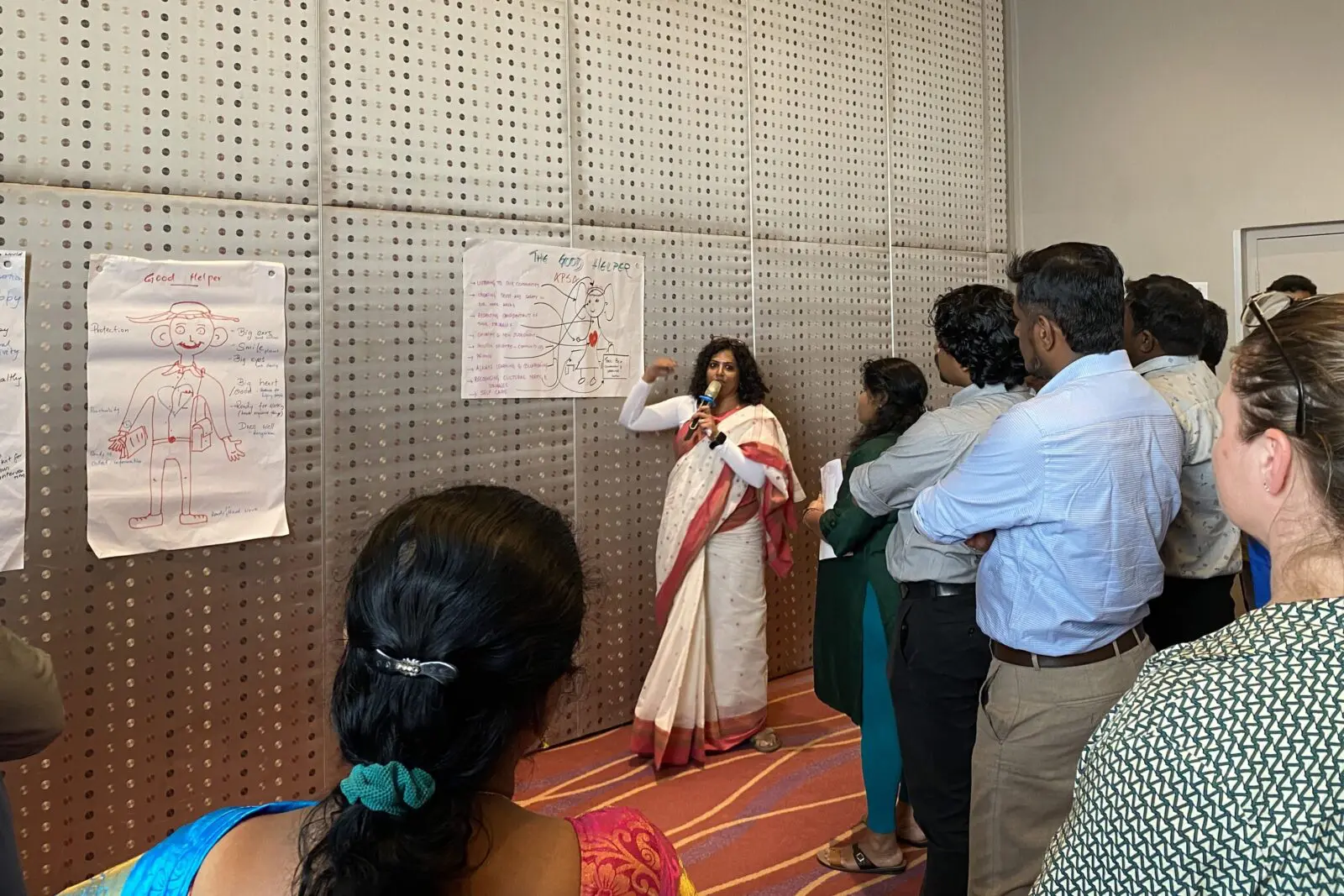
The missing link
«These manuals have been our missing link. We encounter so many people who have gone through so much hardship. It’s incredibly difficult to know what is best to do,» says Shakya from Healthy Lanka, one of FORUT’s partners in Sri Lanka.
In the north of the country, another partner, RAHAMA, is seeing an increasing number of women who feel compelled to work, especially as domestic workers in other countries, without any protection. They return home with horrific stories of what they have been subjected to.
«Sometimes the stories are unbearable,» say Karthi and Nirmala, two colleagues who meet these women and witness these traumas up close.
In addition to supporting people with trauma in the best possible way, they also have to make difficult judgments about when and how to help survivors report the crimes and support them through legal processes. It is by no means without risk. Threats are very common.
«What makes the greatest impression is how much our colleagues have to fight for the survivors to receive dignified help in line with human rights. It’s like the battle between David and Goliath, and fortunately, they win sometimes,» says Elin.
«They save lives every day, and this course can help them feel more secure in their work by giving them good knowledge and methods that are proven to help without causing harm. Increased knowledge provides better understanding and therefore more appropriate help and support.»
When men are abused
Sexual violence against boys and men is shrouded in shame and taboo in most societies, and there is little data available.
In many countries, boys and men are also less protected by law. CWIN, FORUT’s partner in Nepal, encounters some of the boys through their Child Help Line. The organization runs a transit shelter for boys, but there are few services available for adult men.
«Gender role patterns, expectations of masculinity, and patriarchal structures in society suppress not only women, but has a great cost on men too» says Samitha from FISD in Sri Lanka.
They are hosting the course and focus on violence against women and children as their primary area of work. This also means they work to change society’s perceptions of gender.
«There is little room for men to talk about their struggles, and those who don’t fit into traditional gender roles are particularly vulnerable. We have a long way to go before we can say that we are a gender-equal society,» she says.
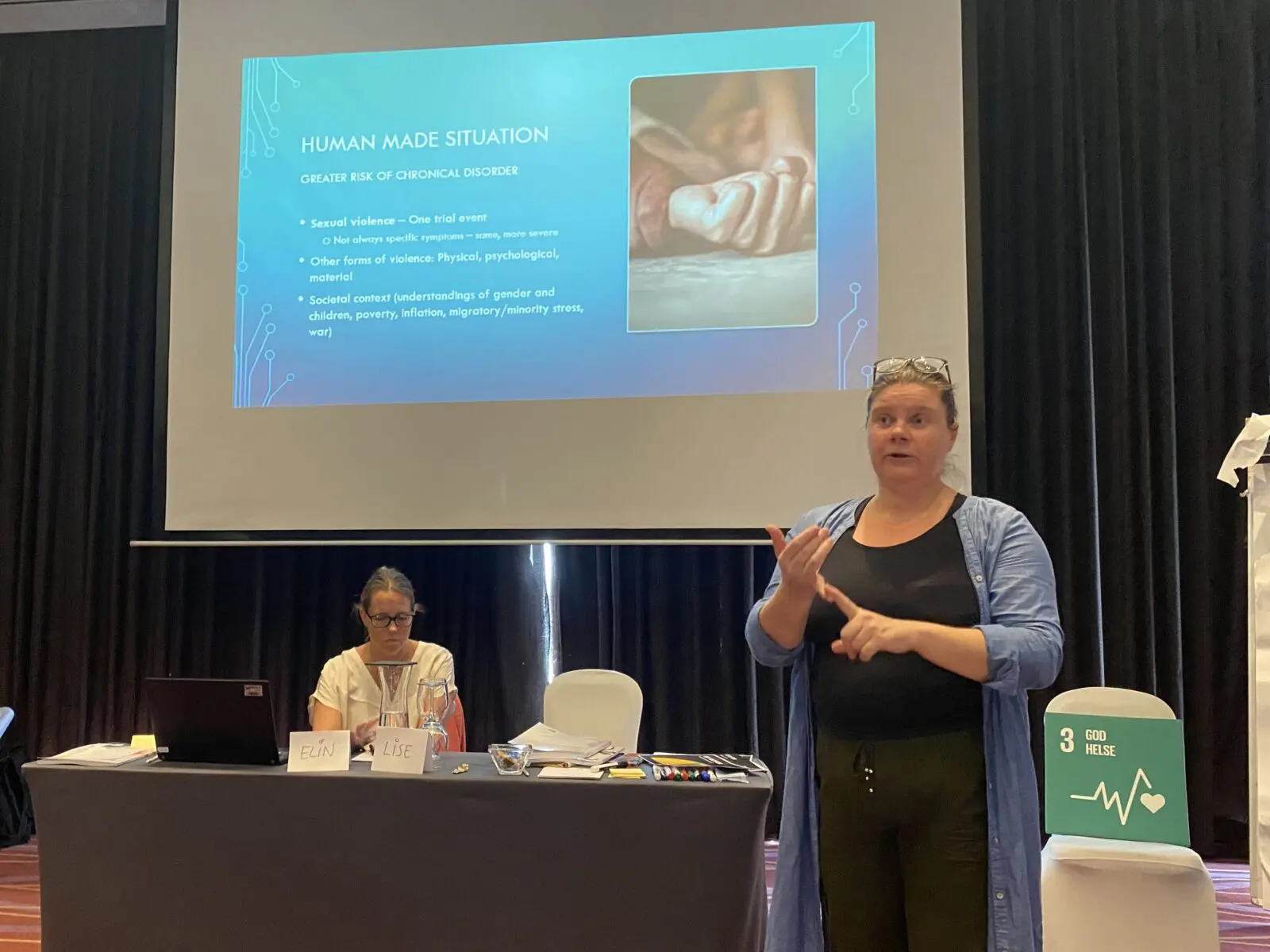
Learning together
The course consists of presentations on tools, conversations, and reflections shared with everyone. All participants contribute exercises and activities based on their own work experiences.
FORUT’s partners in India and Nepal, who have already been involved in piloting the manuals, provide useful tips on how the knowledge can be shared with colleagues, teachers, police, and local authorities in their communities.
Knowing more about how our body and brain function, both with and without trauma, is a great strength. And the shared experience gives us strength. That is the most important takeaway from an intense week in Colombo.




